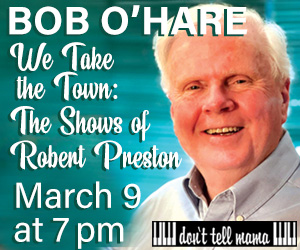by Carol Rocamora
Given the trauma of the current American presidency, it’s a welcome distraction to focus on another one. Indeed, it’s therapeutic to be reminded that things were pretty precarious in other times, too.
The Great Society, part two of Robert Schenkkan’s dramatic account of Lyndon Baines Johnson’s reign, covers the turbulent years from 1965-1968 (All The Way, part one, premiered in 2014). This fact-packed, fast-paced drama plays like a historical pageant, covering the political events of that momentous era. Schenkkan focuses on LBJ the progressive, pushing his legislation called “The Great Society” through Congress with the determination of a charging bull (an image LBJ refers to, early in the play). His platform included civil rights, voting rights, Medicare/Medicaid, immigration and education reform, and a “War on Poverty” – signature programs that proved to be the landmark of his presidency.
But always in the background – ever advancing – were other forces in play. The escalating Viet Nam war and growing racial violence soon eclipsed his tremendous legislative achievements, culminating in his ultimate decision not to run again in 1968. That moment plays like the denouement in a Shakespearean tragedy.
As a docudrama, The Great Society is invigorating in its pace, sweeping in its scope, powerful in its impact. Under Bill Rauch’s swift, sure direction, a distinguished cast of 19 parades before us in multiple historical roles. We watch LBJ (the always formidable Brian Cox) outwit George Wallace (David Garrison), interact with Martin Luther King (Grantham Coleman), spar with J. Edgar Hoover (Gordon Clapp) on one side and Robert Kennedy (Bryce Pinkham) on the other. Unlike our current president (the comparison is inevitable), LBJ always kept advisors at his side – like VP Hubert Humphrey (Richard Thomas) and Secretary of State Robert McNamara (Matthew Rauch), feeding on the interaction even when it was contentious. The ever-versatile Frank Wood plays Senator Everett Dirksen and numerous other political figures.
David Korins’s circular set enhances the flow of events. Center stage, we see LBJ either seated at his massive desk, or standing as events swirl around him. The surrounding cast members, seated in a circular pew, rise to play their respective scenes. At times, Rauch directs the ensemble like a chorus, participating in the action, providing sound effects (including gun shots). All the while, an upstage screen (designed by Victoria Sagady) announces the continuing rise in the number of dead and wounded in Vietnam, as a devastating reminder of the unfolding tragedy that would bring down the president. Images of Watts, the Chicago riots, the Selma March – all flash before our eyes, while the casualty numbers continue their relentless rise.
There are memorable moments enacted onstage – the emergence of Stokely Carmichael (Marchant Davis), father of the Black Power moment; the self- immolation of Norman Morrison (David Garrison again), the Quaker minister in protest of the Viet Nam War; and numerous others. Of special note is the penultimate scene following LBJ’s decision not to run for reelection. While LBJ congratulates Nixon (David Garrison, again) on his 1968 victory, the specters of the assassinated Martin Luther King and Bobby Kennedy rise from the pews, victims of that terrible time.
But what about LBJ, the man? A few moments in this two-hour-forty-minute pageant provide us with a glimpse of what The Great Society might have been, had Schenkkan focused more on the president, rather than the presidency. Yes, we see the blustery external character of LBJ – played ably by the great actor Brian Cox. His coat of many political colors include shades of profane, loud, forceful, manipulative, bullying – even charming and humorous. As for his internal conflicts, his insecurities, his fears, his doubts, we see flashes – particularly in the three fine soliloquies that Cox delivers, Shakespearean style. The intimate scenes between LBJ and Lady Bird (Barbara Garrick) are especially revelatory, but they are fleeting and few.
“I don’t understand why they hate me so much,” LBJ cries. Would that we could have more of those vulnerable moments, to know who this man really was. Hopefully, Schenkkan will have a new opportunity to dig deeply into the psyche of another presidential figure poised on the precipice of tragedy. The current one, perhaps?
Photos: Evan Zimmerman
The Great Society by Robert Schenkkan, directed by Bill Rauch, at Lincoln Center Theater (Vivian Beaumont), through November 30




